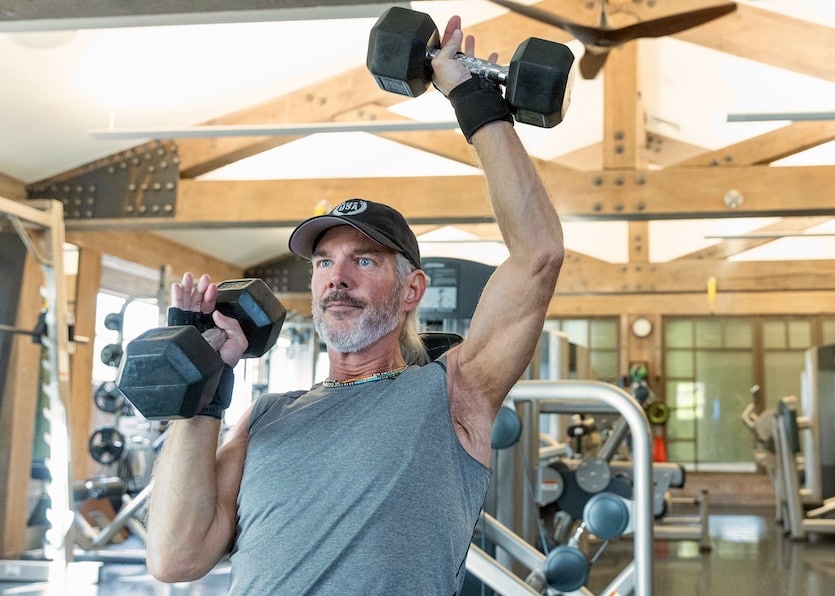When we talk about youthfulness, we tend to focus on harnessing the positive (more energy!) or stopping the negative (I’m not so interested in having a heart attack anytime soon). But the one thing that sort of rests in the back of our minds is, well, exactly that: our minds.
We know that cognitive function is vital to our longevity and youthfulness, and we know that the threat of losing some brain power is always lurking in our thoughts like a nocturnal predator just waiting to pounce when we’re least expecting it.
When you consider that our brains use about 20 percent of the total energy, oxygen, and blood in our bodies (and that there are nearly 100,000 miles of blood vessels in your skull), you know that brain health is our health.
It’s still one of the last great frontiers in medicine—figuring out how to best minimize the damage and risk of decline as we age. But we do know quite a bit, and one of the areas of research suggests that how we supply nutrients to our brains goes a long way in maintaining cognitive function. To that end, studies have shown that certain nutrients and foods pack a lot of power.
Here’s some food for thought.
- Omega-3 fatty acids: Because these fatty acids (like DHA from fish oil) make up the cell membranes in your body, they are fundamental building blocks of your brain cells, making them high-quality nutrients for brain health. It’s one of the reasons why I really eat more and more fish.
- Vitamin B: The B vitamin folate is essential for brain function; it’s been shown to help maintain cognitive function.
- MCT oil: This has gained more attention lately, partly because it’s an oil that doesn’t need to be digested so it can go straight to brain development. We use it for nearly everything (except pan cooking/frying), including baking and using it as a dipping sauce for breads.
- Others: Calcium and magnesium, as well as quercetin (a flavonoid), all have been shown to have positive influence.
- Water: Hydration, hydration, hydration. I drink a lot of water throughout the day, and I think it’s an important part of overall brain function.
Eat well, think well, be well.
I’ll Take Two

If I could have a prescription pad to give the same two things to every person in the world to help them improve their overall health, I’d write the same thing over and over: Exercise and sleep.
We can jibber-jabber about magic potions and quick fixes all we want, but research shows time and time again that those two things have a profound effect on just about every aspect of your body. It’s no different for your brain.
Research has shown that exercise has a positive influence on memory and cognitive function, and it can help increase the size of your hippocampus (your memory center). In addition, studies show that it can help reduce the stress hormones that cause your brain function to turn a little wacky.
And sleep? Well, that’s just like a neurological car wash—sleep is what scrubs away the gunk that builds up in your brain, so that it can function better. High-quality sleep equates to a high-quality brain, not only from a research standpoint, but also a day-to-day one. I know that I feel groggy, foggy and downright sloggy when I don’t sleep well.
Now, I’m not saying that either of those things are easy to do if your habits have been disrupted. Changing habits takes time, but as you work on them, remember my two guiding principles: Take it slow and be kind to yourself. You won’t change your body overnight, but you can do it one night and one workout at a time.
Mind Matters

There’s a reason why the ubiquitous “use it or lose it” mantra applies to so many parts of our body. You get better, stronger, and younger when you take action. It applies to our muscles—you have to work them to keep them strong. It applies to our bones—you have to stress them to keep them healthy. It applies to our sexual organs—you have to dance to keep your steps smooth.
Most of all, this mantra was made for your brain. If you want to keep your brain sharp and smart, the best thing you can do is keep those neurons firing as often as possible. That’s why so many experts recommend learning new hobbies or engaging in games like crosswords and chess. The reason: they help improve your neuroplasticity, which is the function that allows your brain to grow and function well as you learn and gain new experiences.
I’m not a huge fan of putting numbers in boxes or trying to guess a five-letter word for energy that starts with a V. Me? I have two things I really like to do to keep my mind active. (Vigor!)
One, I’m really getting into learning new languages, especially Spanish. Es divertido! It’s fun!
Two, I love learning the layout of new cities when I get there. Instead of relying on mind-numbing GPS and “turn left in 150 feet” voice commands, I really like to take in my surroundings, get to know the streets, find my way, meet new people, and engage in my new environment. Besides being enriching and fulfilling from a mental-health standpoint, I know that the habit is helping my brain stay active and young.


